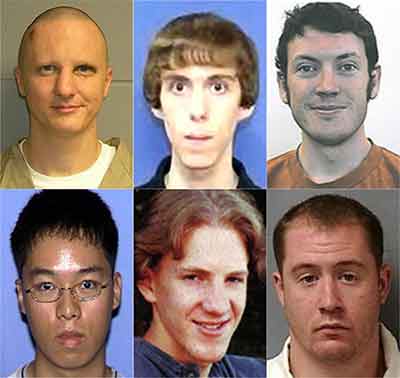
Lawmakers are working to introduce rules to prevent the mentally ill from obtaining guns.
January 26, 2014
The Obama administration announced January 3 executive actions intended to keep guns out of the hands of the mentally ill. The U.S. Department of Health and Human Services (HHS) is proposing a rule whereby states can submit information on such people to the National Criminal Background Check System (NICS).
Who would be prohibited from buying or owning firearms? In addition to felons and people convicted of domestic violence, a patient involuntarily committed to a mental institution along with those legally determined to be a danger to themselves or others, and those who lack the mental capacity to manage their own affairs.
Presently, those who have been involuntarily committed to a mental institution, have been found incompetent to stand trial or not guilty by reason of insanity, or otherwise have been determined through an adjudication process to have a severe mental condition, are already banned from owning guns. The cases are reported by the judiciary.
Under certain provisions of the Health Insurance Portability and Accountability Act (HIPAA), such reporting to NCIS would be prohibited. HIPAA protects the privacy of individually identifiable health information. HHS has published a notice of proposed rule making, which would permit certain HIPAA-covered entities from disclosing to the NICS the identities of persons prohibited by federal law from possessing or receiving a firearm for reasons related to mental health.
These executive actions come in the wake of mass shootings. Consider the following mass shootings since April 2012: On December 14, 2012, 20 were killed by Adam Lanza in the Sandy Hook Elementary School shooting; the 12 killed at the movie theater in Aurora, Colorado, on September 27, 2012; Andrew Engeldinger killed five people at the Accent Signage Systems in Minneapolis; on August 5, 2012, Army veteran Wade Michael Page killed six Sikh temple members at Oak Creek, Wisconsin; on July 20, 2012, James Holmes killed 12 people at a movie theater in Aurora, Colorado; on May 29, 2012 Ian Stawicki killed five people at Cafe Racer Espresso in Seattle; on April 6, 2012, Jake England and Alvin Watts killed five black men in Tulsa, Oklahoma; and on April 2, 2012, One L. Goh killed seven people at Oikos University in Oakland.
Why an executive action rather than Congressional action? Because Congress failed to pass legislation strengthening background checks; to ban dozens of military-style assault weapons; to stiffen penalties for “straw purchasers,” and to limit the size of ammunition magazines.
The president’s only alternative is executive action.
This executive action should not run afoul of the Second Amendment. The Supreme Court in District of Columbia V. Heller held that Americans have a Second Amendment right to “keep and bear arms.” However, this does not mean that federal and state governments cannot pass and enforce gun control laws. In fact, most gun control laws have been found to be valid after the Supreme Court decision.
The Tenth Amendment to the Constitution prevents the federal government from mandating state participation. In order to improve state reporting, federal grants and state laws that require state agencies to report will be needed.
However, it should be noted that most people who commit violent acts are not mentally ill, and the vast majority of people with a mental illness are no more violent than anyone else. To suggest otherwise tends to stigmatize the mentally ill.
Once on any government “list,” it is not always easy to get off. At the very least, the restoration of such individuals’ right to buy or own firearms should come after a qualified clinician has determined the person is unlikely to relapse or become a danger to himself or others.
While this executive action addresses the problem of the mentally ill buying or owning firearms, Congress still needs to pass reasonable federal gun control legislation.
Those who support or oppose this rule can submit comments by March 10, 2014.


 The Hunger Site
The Hunger Site
January 27, 2014 at 6:36 am
Keeping Firearms from the Mentally Ill
“The”, though one of the simplest words in the English language, can be misused. Above is example. Its use above is identical to “the” Blacks. I doubt that is the intent, but is is the content.
This, from the article is both specific and accurate:
Who would be prohibited from buying or owning firearms? In addition to felons and people convicted of domestic violence, a patient involuntarily committed to a mental institution along with those legally determined to be a danger to themselves or others, and those who lack the mental capacity to manage their own affairs.Who would be prohibited from buying or owning firearms? In addition to felons and people convicted of domestic violence, a patient involuntarily committed to a mental institution along with those legally determined to be a danger to themselves or others, and those who lack the mental capacity to manage their own affairs.
This is doubly irresponsible:
stigmatize the mentally ill
Under no circumstance ought prejudice and discrimination be replaced by stigma.”
I could find no way to reach an editor.
January 27, 2014 at 5:37 am
“the” mentally ill is responsible writing